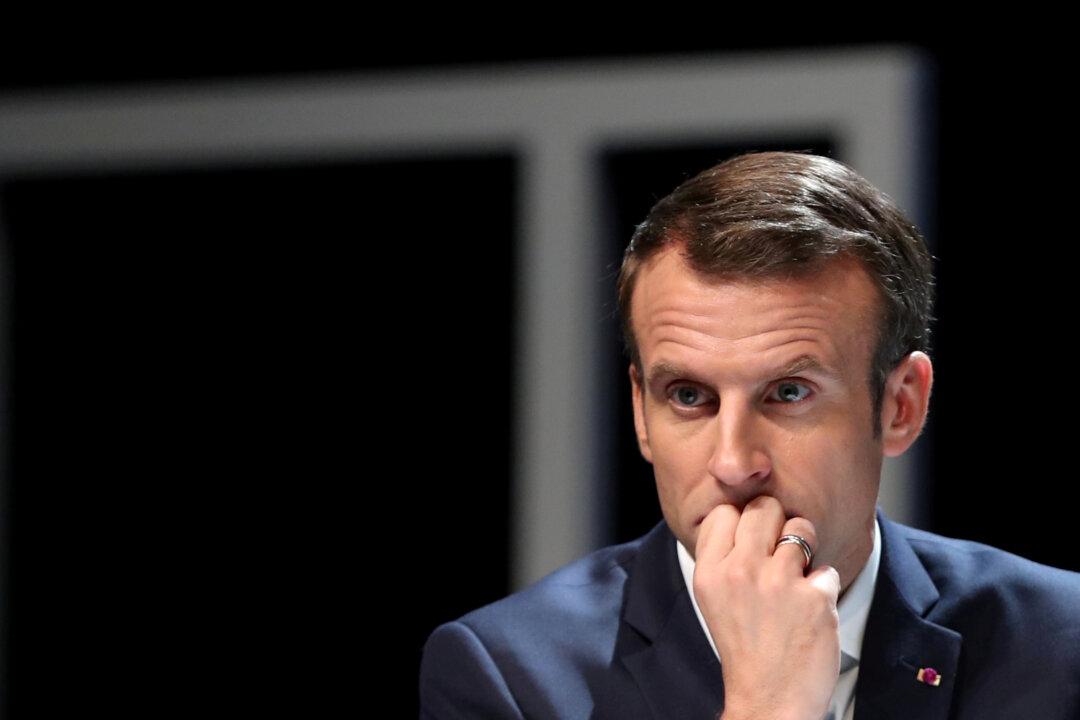PARIS—French President Emmanuel Macron, caught off-guard by violent demonstrations against diesel tax increases, warned his cabinet Nov. 26 that the protests threatened to tarnish France’s image and said the government needed to listen to voter anger.
The 10 days of unrest, which on Nov. 24 left some Parisian boulevards transformed into battlefields, hit Macron as he sought to counter a sharp decline in popularity, and have again exposed him to claims of being out of touch with voters.





